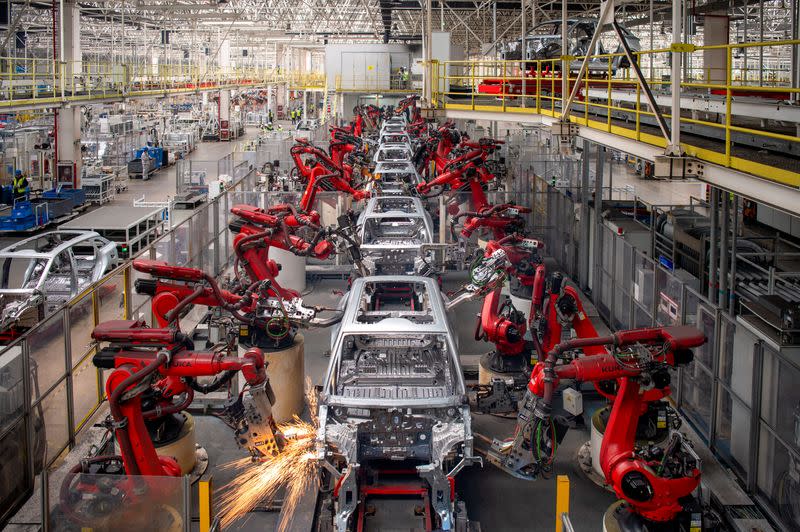China EV adviser sees tech tie-ups resolving EU trade conflicts

SHANGHAI (Reuters) - China's auto industry should seek solutions to trade conflicts by deepening ties with European peers via technology partnerships, a Chinese policy adviser said after the European Commission started a probe into China's electric vehicle subsidies.
The Chinese government, industrial associations and companies should alleviate the impact on other markets as Chinese EVs exports grow and seek win-win relationships with local companies, Dong Yang, vice Chairman at China's top EV think tank China EV100, wrote in an article published on his social media Wechat account on Monday.
Dong, a former official at China's Ministry of Machinery, one of the government bodies overseeing China's auto industry in 1990s, and state-owned automaker BAIC Group, also suggested Chinese battery suppliers should deepen ties with European companies and build a local battery supply chain in Europe. The ministry was later turned into a federation.
Meanwhile, European automakers can also leverage China's EV technologies to accelerate their transition to electrification, he added.
Dong's comments echoed China's EV industry leaders from policy adviser and 'father of EVs' Wan Gang to the heads of carmakers and battery giant, who all called for stronger global cooperation and standardisation in policy to fasten the technological transition at the Munich IAA conference earlier in the month.
A week later, European Commission President Ursula von der Leyen accused China of flooding global markets with electric cars at artificially low prices due to huge state subsidies and started a probe that could result in punitive tariffs.
Chinese EV maker Xpeng in July struck a deal with Volkswagen to jointly build two new models based on Xpeng's EV platform in China. Others, like LeapMotor are also seeking to license its EV technologies to foreign partners.
Chinese battery maker CATL has been ramping up its German plant and is building another site in Hungary.
Its peer CALB has been localising its supply chains by offering technical support to local firms and encouraging Chinese suppliers to set up plants in Europe, aiming to source at least 70% of key materials it needs to produce batteries in Europe locally by 2026.
(Reporting by Zhang Yan, Brenda Goh; editing by David Evans)


